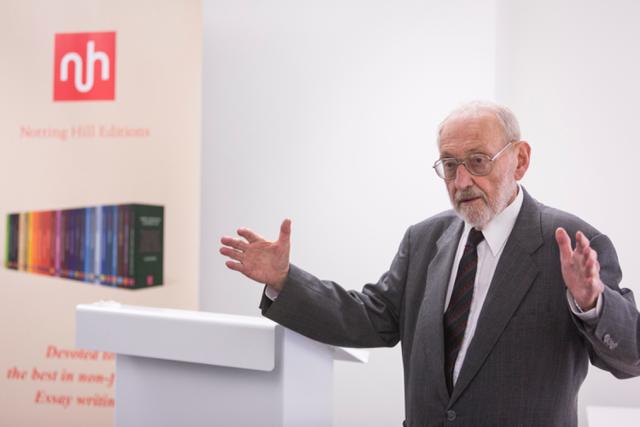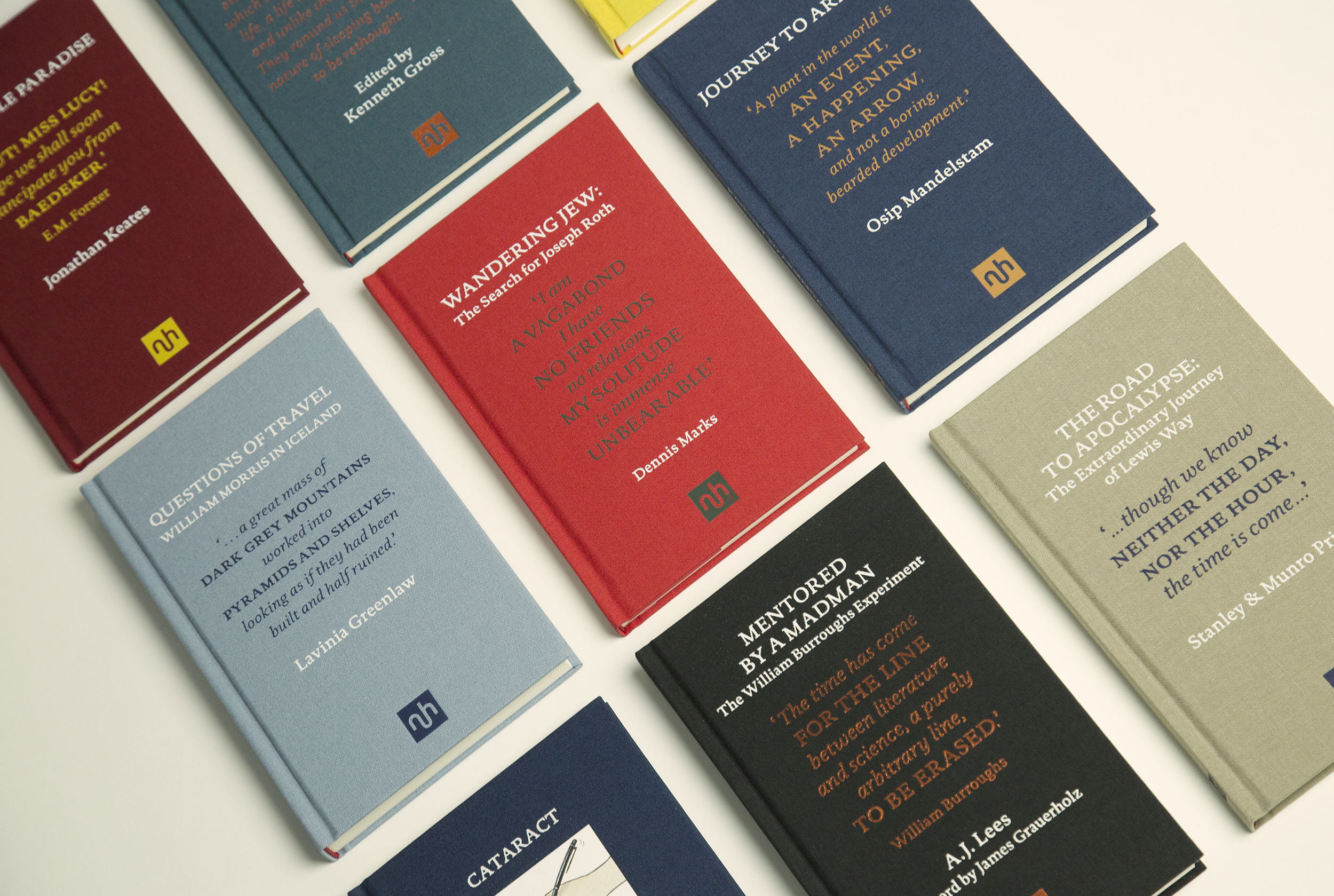E.B. White, who died in 1985 at age 86, was one of the most celebrated essayists of the 20th century, but he surely knew that most people wouldn’t remember him for the sublimely expressed first-person reflections he published in the New Yorker and Harper’s. Those pieces, collected in such volumes as One Man’s Meat and Essays of E.B. White, remain reliably in print, treasured by an ardent band of devotees. But it’s White’s children’s books, including Charlotte’s Web and Stuart Little, that really keep his name before the reading public. For many decades now, fiction, not nonfiction, has been the surest path to literary immortality.
“I am not fooled about the place of the essay in twentieth-century American letters—it stands a short distance down the line,” White told readers in 1977:
From White we can derive a useful corollary—namely, that publishers seeking quick fame and fortune had best stay away from the essay, too. Essay collections are, with few exceptions, also-rans on the bestseller lists, not huge moneymakers for the publishing houses willing to bring them out.
That makes Notting Hill Editions, launched in 2011 by the late entrepreneur Tom Kremer, all the more audacious. Headquartered in England, Notting Hill not only publishes essays; it publishes only essays. Kremer’s scheme might sound quixotic, but before his death last year at age 87, he had faced tougher odds. Born in Transylvania, Kremer survived the Nazi concentration camp at Bergen-Belsen, then fought in Israel’s war of independence. After beginning his career in business, Kremer popularized the Rubik’s Cube, which became a global sensation. His interest in writing and reading led him to the essay, and he fell in love with the form. Kremer founded Notting Hill Editions “to revive the art of the long-form essay, and to create exceptionally beautiful books that would be lingered over and cherished,” according to the company’s catalogue.

Notting Hill has continued under the management of his daughter, Kim Kremer. It’s a small house with a modest profile, although the idea of a former toy magnate turning to book publishing has proven irresistible to journalists. Comparisons between Notting Hill’s editions and playthings tend to come up in reviews. The books are “memorable, collectible, akin to erotic, brain-teasing toys for the tactile reader,” Time Out magazine noted with approval.
Notting Hill Editions titles are, indeed, lovely—almost compact enough to fit in a breast pocket, with beautiful linen bindings, designer-quality paper, and, in some volumes, ribbon bookmarks stitched into the spines. The books look, at first glance, serenely antiquarian, although a few flourishes throw a whimsical wink in the reader’s direction. All That Is Worth Remembering, Notting Hill’s selection of writings from 19th-century man of letters William Hazlitt, features sensible green panels enlivened by pink lettering across the front. The aesthetic scheme doesn’t seem like it would work, yet somehow it does. Page numbers for all Notting Hill books are bright red. On Christmas, a Notting Hill anthology of yuletide essays from contributors as varied as Charles Dickens, C.S. Lewis, and Anton Chekhov, has a crimson binding vivid enough to toast the retinas like holiday chestnuts. This is obviously a publisher that likes to have fun.

Fun has lately been distanced from the tradition of the essay, which is at least one reason the genre hasn’t found more favor with modern audiences. In a culture that compels students to write essays, as more than one commentator has pointed out, a grudging air of obligation tends to hang over their creation—and their consumption. It hasn’t helped that contemporary essays often indulge the morosely confessional, coming across not so much as literature but group therapy.
Consider last year’s edition of The Best American Essays, an annual anthology from Houghton Mifflin Harcourt. The 2017 collection includes ruminations on racism, rape, combat, police brutality, political refugees, cerebral palsy, murder, alcoholism, natural disaster, poverty, bipolar disorder, HIV, and pornography. There is also, for good measure, an essay on penises.
None of these topics should be off-limits; the underlying promise of any essay, after all, is its ability to embrace anything and everything. But variety is precisely what seems lacking in The Best American Essays in recent years. An almost uniform focus on the tragic and the outré suggests a literary tack that exhaustingly equates darkness with sophistication.
Notting Hill’s essay collections connect with a more hopeful tradition, highlighting writers who have used bright disquisition to relieve the human condition, not merely record its grimmest aspects. Dark realities inform the essays of Notting Hill’s authors but don’t prevail over them. Hazlitt suffered through failed romances and financial collapse. Virginia Woolf, the voice behind Notting Hill’s Essays on the Self, battled mental illness much of her life. Another Notting Hill title, Grumbling at Large, surveys the curmudgeonly musings of J.B. Priestley (1894-1984), the wry Englishman, too little read today, who grappled with the implications of the Cold War and consumer culture.
No Pollyannas here, to be sure. But with wit and humor, these writers, like the old master Montaigne, another Notting Hill author, showed that essays could provide an affirming agency over the conflicts and contradictions of personal experience—a way to clarify, through the power of language, life’s looming complications.
The personal essay’s abiding virtue has always been its intimacy—not the cheap kind created by ceaseless disclosure, but a sharing based on what the writer and reader are assumed to have in common.
Priestley, in a 1923 essay called “All About Ourselves” that is reprinted in Grumbling at Large, suggests that the most basic connection between an essayist and his audience is the bond of culture. He is silenced by a woman’s casual request to “tell me all about yourself,” feeling that he would rather offer his opinion on “whether I approved of William Shakespeare or liked early rising.” It’s the exploration of such questions, he argues, that builds real relationships:

As the idea of a common culture has lost currency, writer Phillip Lopate concluded some three decades ago, the personal essayist has had a harder job bending a reader’s ear. That challenge, he hinted, has tempted modern essayists into the kind of tabloid exhibitionism now so common to the genre—what Lopate called “cannibalizing oneself and one’s privacy.”
Notting Hill’s lineup of period essayists, on the other hand, provides a potent reminder of what an essay can be when it points to something larger. Woolf’s Essays on the Self, though ostensibly an invitation to interior monologue and navel-gazing, casually draws upon Jane Austen and Samuel Taylor Coleridge, H.G. Wells and Arnold Bennett, Horace Walpole and Charles Lamb. Her essays are a conversation not only between her and her readers but among Woolf and previous generations of genius. She recognizes the essay’s basic requirement—a lone voice, however idiosyncratic, through which multitudes manage to speak.
That ideal isn’t yet dead, as evidenced by Five Ways of Being a Painting and Other Essays, Notting Hill’s collection of winners from its third essay contest to promote new writers. William Max Nelson, who took top honors with the title essay, explores how we can mentally and spiritually inhabit a work of art, using painter Claude Joseph Vernet and philosophers Walter Benjamin and Denis Diderot as his muses.
Nelson lives in Canada, and several of the other winners live in the United States. Notting Hill’s reach across the Atlantic extends to its book sales, too: The publisher has a partnership with New York Review Books to promote and distribute some of its titles in North America. Those not available through NYRB can be purchased at Notting Hill’s own website.
White’s modest claim for the essay—that despite its low stature, it offered a writer compensating freedoms—is a promise that also extends to readers, as Tom Kremer’s eccentric experiment in publishing reminds us. An evening with these little books from Notting Hill Editions is, in its own way, a liberation.
